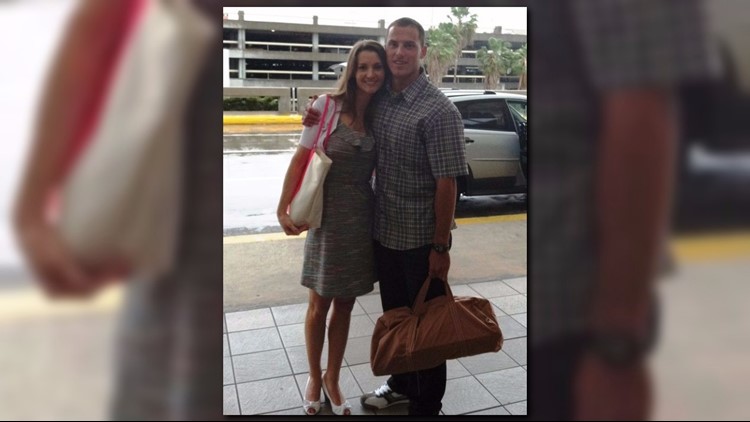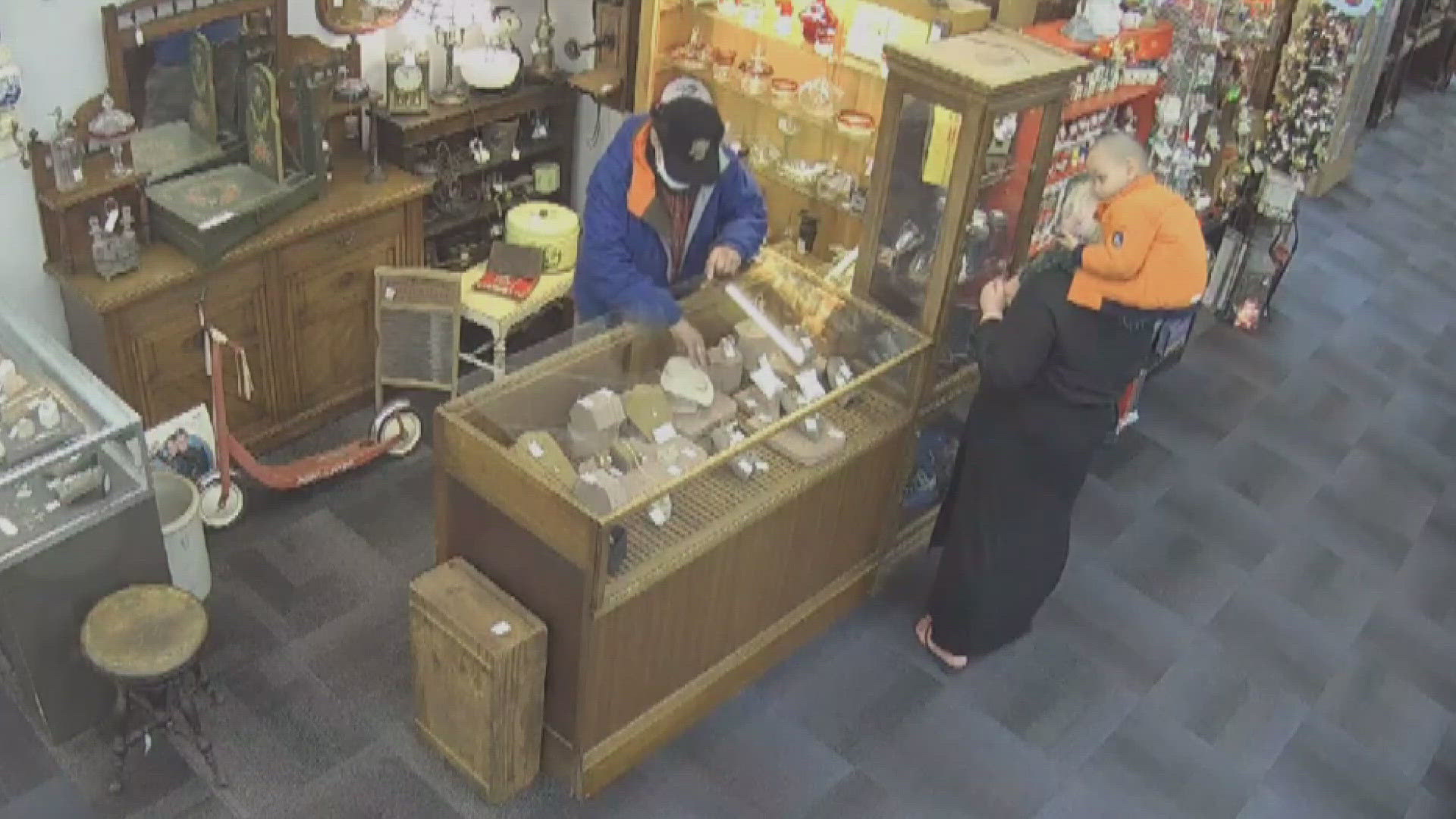Anthony Curcio once dreamed of being a major part of the kind of season the University of Idaho is completing this week.
A standout wide receiver at Monroe (Wash.) High School, Curcio arrived on the Vandals’ Moscow, Idaho, campus in 1999 with aspirations of making a name for himself.
He did, but not on the football field, and a few years later, as the architect of one of the most ingenious bank heists in modern American history.
With the Idaho program preparing for only its second bowl appearance this century when it takes on Colorado State in Thursday’s Famous Idaho Potato Bowl, Curcio sometimes reflects on what might have been.
“I wanted to be known as a football player and an athlete and all that comes with it,” Curcio told USA TODAY Sports. “Instead, for the rest of my life, no matter what I try to do to put it right, I am going to be known for some of the mistakes I made.”
No telling of Curcio’s story is complete without rewinding to the remarkable events of Sept. 30, 2008. In a parking lot outside of a Bank of America branch in Monroe, a group of 15 would-be workers assembled, all clad in matching safety vests, caps and protective glasses. They had been lured there by a Craigslist advertisement promising $28.50 per hour for laborers willing to assist in the Clean Monroe Beautification Project.
The ad was a fake. It had been placed by Curcio, and it was a crucial part of his plot.
At 11:05 a.m., a Brinks armored truck pulled up outside the bank and bags stuffed with money began to be unloaded. At that point one of the workers — actually Curcio in disguise, including a painter’s mask and fake mustache — sprinted to the vehicle, pepper-sprayed a guard and charged into the woods with two bags full of cash.
While police launched a manhunt, the culprit was nowhere to be found. He evaded capture by avoiding roads and instead using an inflatable tube to paddle his way along the nearby Skykomish River to safety, with $400,000 in his possession.
“It sounds kind of ridiculous when you hear about someone who robbed a bank and had a tube as their getaway, but on the inside it didn’t feel like that,” Curcio said. “For me it was like, ‘This is the problem. How do I find a solution that works?' and that was how I did it.”
It was the height of the financial crisis, and banks were highly unpopular at the time. That, combined with the fact that Curcio had not used a gun or caused serious harm to anyone, meant he gained a somewhat sympathetic following from a local public fascinated by his ingenuity. One radio listener calling into a talk show christened him "D.B. Tuber," a reference to mysterious 1970s airplane hijacker D.B. Cooper, and the name stuck.
Curcio’s liberty did not. He was caught in similarly unusual circumstances, having been spotted doing a practice run of the heist by a homeless man who found Curcio's behavior unusual. The man, who had recorded Curcio’s license plate number, handed to police some gear Curcio had left behind, enabling them to make a DNA match.
In one sense, it was bad luck. In another, it might have saved Curcio's life.
“As embarrassing as it is to my family, if I had gotten away with it I would have lived like that to the grave,” said Curcio, who says he needed the money to feed his drug habit. “It takes a real big snowball to be rolling to get to the point where you think about stealing from an armored truck. Even once I was thrown into jail it took a long time for me to wake up.”
It was a downward spiral that began in college. Curcio found the campus party lifestyle to his liking and was suspended during his redshirt year. Idaho had been running hot before his arrival, having beaten 16-point favorite Southern Mississippi to win the Humanitarian Bowl.
Curcio got a clean slate when coach Tom Cable, who later became head coach of Oakland Raiders, came in during his second year and Curcio was living right and training hard. However, Curcio suffered a torn anterior cruciate ligament while returning a punt in practice. He was prescribed Vicodin for the pain, and he never played football again.
“I was depressed that my whole identity wrapped around sports was gone,” he said. “Now I was just a student. I latched onto the painkillers, and within a few prescriptions, my dream of football was gone. The pills had me.
“I blame myself for everything that has happened, not football, but it definitely played into it. I was stupid. I had no life wisdom because I had been a good athlete and a big fish in a small pond, so I got praised no matter what. Now it was gone.”
Curcio married his high school sweetheart, and they had two children. After college he was making solid money flipping houses. However, his addictions never left him, and when the financial bubble burst, his asset base was swiftly rendered worthless. Hence, the bank job.
After being apprehended, Curcio spent five years of a six-year sentence in medium- to low-security prisons in Texas and Florida.
After his release, Curcio and his wife saved their marriage and he set about rebuilding his life. He has found success with self-published children’s books revolving around sports themes, including stories about LeBron James and Stephen Curry.
He also speaks regularly to youngsters about the pitfalls of addiction and did a TED Talk at Idaho. While keen to avoid glamorizing his criminal past, he admits that the words “prison” and “bank robbery” are a good way get teenagers to pay attention.
“I tell young athletes that they have come this far,” he said. “Why throw it all away now like I did?
“I look back now and I had to come to terms with the fact that I was a liar. At my lowest point, with the drugs, I had no integrity. I had nothing of true value. After that I started to take account of myself. It sucked to start to tell the truth because the truth of what I had done and how I was living was so hard and horrible. But it got me back on track and brought my relationship back.”
Curcio and his family have been back to the Kibbie Dome in Idaho, and he is delighted for the Vandals, whose 8-4 season under Paul Petrino landed them the bowl bid.
It also makes him wonder how things could have turned out different.
“I would have loved to have given it a real shot,” he said. “Here was something I was good at, that I had talent for and didn’t give myself a chance to fulfill it. I am so thankful that my life has gotten better and I am living the right way. But I’ve got a lot of work to do, otherwise people will just remember me as a guy who stole a bunch of money and got away on a tube.”



